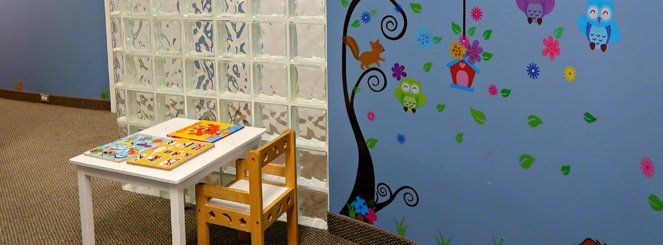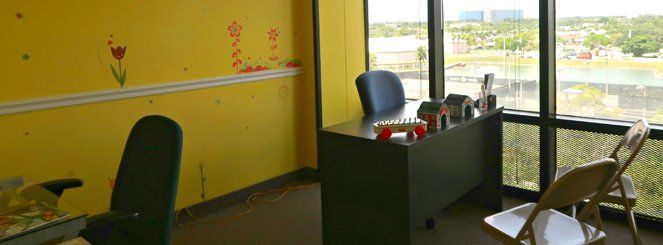Behavioral Problems
Behavioral Problems
Nationally Accredited | 25+ Years of Experience | Locally Owned
Nationally Accredited25+ Years of ExperienceLocally Owned
Behavior or Conduct Problems in Children
Children sometimes argue, are aggressive, or act angry or defiant around adults. A behavioral disorder may be diagnosed when these disruptive behaviors are uncommon for the child's age at the time, persist over time, or are severe.
Because disruptive behavior disorders involve acting out and showing unwanted behavior toward others, they are often called externalizing disorders. If your child is showing behavioral problems, contact Our Children Our Future Inc today.

Prevention of PTSD
It is not known exactly why some children develop PTSD after experiencing stressful and traumatic events, and others do not. Many factors may play a role, including biology and temperament.
But preventing risks of trauma, like maltreatment, violence, or injuries, or lessening the impact of unavoidable disasters on children, can help protect a child from.

Conduct Disorder
Conduct disorder (CD) is diagnosed when children show an ongoing pattern of aggression toward others and serious violations of rules and social norms at home, in school, or with peers.
These rule violations may involve breaking the law and result in arrest. Children with CD are more likely to get injured and may have difficulties getting along with peers. Examples of CD behaviors include:
- Breaking serious rules, such as running away, staying out at night when told not to, or skipping school
- Being aggressive in a way that causes harm, such as bullying, fighting, or being cruel to animals
- Lying, stealing, or damaging other people's property on purpose

Prevention of Disruptive Behavior Disorders
It is not known exactly why some children develop disruptive behavior disorders. Many factors may play a role, including biological and social factors.
It is known that children are at greater risk when they are exposed to other types of violence and criminal behavior; when they experience maltreatment or harsh or inconsistent parenting; or when their parents have mental health conditions like substance use disorders, depression, or attention-deficit / hyperactivity disorder (ADHD).
The quality of early childhood care also can impact whether a child develops behavior problems. Although these factors appear to increase the risk for disruptive behavior disorders, there are ways to decrease the chance that children experience them.
The quality of early childhood care also can impact whether a child develops behavior problems. Although these factors appear to increase the risk for disruptive behavior disorders, there are ways to decrease the chance that children experience them.
Contact Us
Get more information about our services.
Contact Us
Thank you for contacting us.
We will get back to you as soon as possible
We will get back to you as soon as possible
Oops, there was an error sending your message.
Please try again later
Please try again later
Our Facebook Feed
Contact Us
Our Children Our Future Inc
450 N. Park Rd. Ste 600
Hollywood, FL 33021
Tel:
954-929-7515 (Landline)
Hollywood, FL 33021
For a copy of our Auxiliary Aids Plan, please email us
egiraldo@ocof-florida.org
or call us at 954-929-7515.
We are continuously working to make our site universally accessible to everyone and conform to the W3C, WCAG 2.1 standard.
This action will make our website more visible to google searches.
Privacy Policy
| Do Not Share My Information
| Conditions of Use
| Notice and Take Down Policy
| Website Accessibility Policy
© 2024
The content on this website is owned by us and our licensors. Do not copy any content (including images) without our consent.
